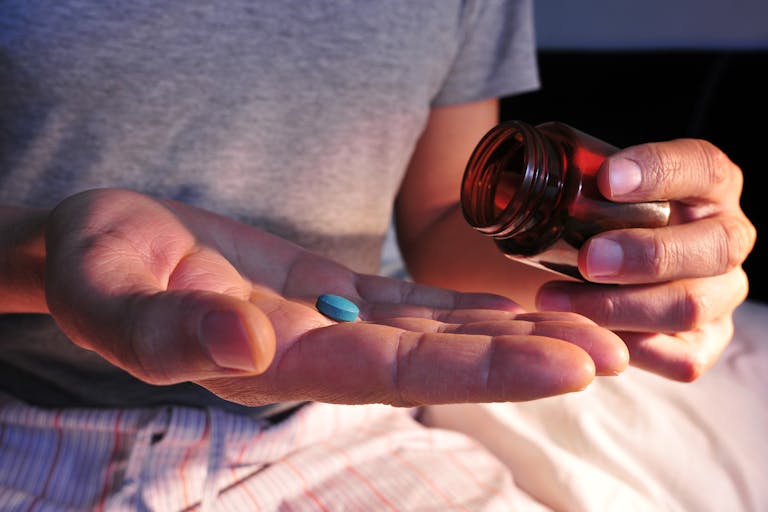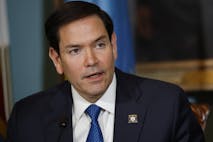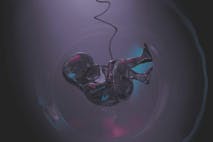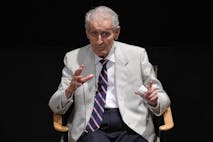
Prosecutors drop charges against Polish doctor who aborted baby in ninth month
Nancy Flanders
·
Maryland doctor speaks out against assisted suicide
Assisted suicide continues to spread throughout the country, with multiple states considering making it legal. Washington, D.C., recently passed a bill legalizing assisted suicide, although Congress is currently taking action in an attempt to overturn it. Maryland is debating assisted suicide for the third year in a row, and one doctor is vocally opposed, warning about the potential negative impacts of its legalization.
Dr. Joseph Marine, an associate professor of medicine in the cardiology division at Johns Hopkins Hospital, has continually fought the attempts to legalize assisted suicide in Maryland. He will be testifying in front of the legislature about why he feels it should remain illegal, and he recently spoke to a Baltimore news affiliate about why he is such an outspoken advocate against it.
“We have a law right now that says that assisted suicide is illegal, and that’s for very good reasons,” he said. “It’s to protect life, and it’s to protect patients from the potential dangers of assisted suicide. What this law does, is it carves out a special exemption for patients with advanced illness and disabilities, and it says that the protection of the law does not apply to you.”
Indeed, we have seen in Europe that vulnerable people — people with mental illness and disabilities — become victims of euthanasia after assisted suicide is legalized. But that wasn’t the only issue with the bill for Marine.
“We know that where these deadly drugs are prescribed in the state of Oregon, there are hundreds of doses, thousands of pills that are unaccounted for, because the bill does not allow for any regulation, any oversight, or any proper disposal of these medications, and there’s real danger that it could fall into the wrong hands,” he continued.
The anchor pointed out that a terminally ill patient could feel abandoned and pressured, and that legalizing assisted suicide could lead to a “throwaway” society. Marine agreed. “We should never give up on our patients,” he insisted. “We should always want to be there for them, we always want to advocate for them and help them, in every way that the medical system can possibly help them.”
Article continues below
Dear Reader,
In 2026, Live Action is heading straight where the battle is fiercest: college campuses.
We have a bold initiative to establish 100 Live Action campus chapters within the next year, and your partnership will make it a success!
Your support today will help train and equip young leaders, bring Live Action’s educational content into academic environments, host on-campus events and debates, and empower students to challenge the pro-abortion status quo with truth and compassion.
Invest in pro-life grassroots outreach and cultural formation with your DOUBLED year-end gift!
Still, he agreed that he could see why a patient would consider it. “I can understand fear, but the way the doctor should respond to fear is not to encourage suicide,” he said. “It’s to encourage the value of life, to encourage patients to be helped, to help them in any way that we can, in the ethics of our profession.”
He concluded by pointing out that the bill has failed the last two years, and he hopes that it will fail again.
Compassion & Choices, meanwhile, is also lobbying for assisted suicide to be legalized in Maryland, as usual. “When they would like to limit the interventions that are taken to prolong their lives, they have no ability to choose how to control the last phase of their existence,” Seth Morgan, a doctor with the organization, said. “And there just is no ability for physicians to assist these people when they need assistance.”
Of course, what Morgan leaves out is that doctors can assist people suffering from terminal illnesses; there is palliative care and hospice care available for these patients, something Marine specifically mentioned in his interview with ABC2 News. What physicians can’t do is kill them. And that’s what assisted suicide does: it gives doctors the ability to kill their patients.
Something rarely mentioned in the assisted suicide argument is the reasons why people seek assisted suicide. Multiple studies have found that people who seek assisted suicide are found to be struggling not only with low family support, hopelessness, and fear (often fear of pain), but also with clinical depression. The studies have found that when the depression is treated, the request for assisted suicide is often withdrawn.
Assisted suicide preys on some of society’s most vulnerable, and as Marine points out, the job of a physician is not to feed into a vulnerable patient’s fear and despair. It is to give them hope, to give them other options. To do otherwise is a gross violation of the Hippocratic Oath.
Live Action News is pro-life news and commentary from a pro-life perspective.
Contact editor@liveaction.org for questions, corrections, or if you are seeking permission to reprint any Live Action News content.
Guest Articles: To submit a guest article to Live Action News, email editor@liveaction.org with an attached Word document of 800-1000 words. Please also attach any photos relevant to your submission if applicable. If your submission is accepted for publication, you will be notified within three weeks. Guest articles are not compensated (see our Open License Agreement). Thank you for your interest in Live Action News!

Nancy Flanders
·
Human Rights
Bridget Sielicki
·
Human Rights
Carole Novielli
·
International
Angeline Tan
·
Human Rights
Nancy Flanders
·
Human Rights
Angeline Tan
·
Politics
Cassy Cooke
·
Politics
Cassy Cooke
·
Pop Culture
Cassy Cooke
·
International
Cassy Cooke
·
Analysis
Cassy Cooke
·